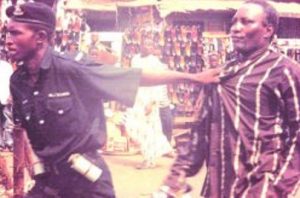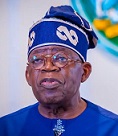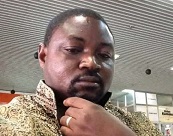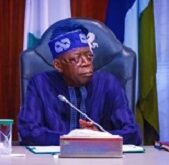Opinion and for the record:
BY LEKAN SHOBO SHOBOWALE

A few weeks ago, I paid a visit to Comrade Mashood Erubami at his office on Old Ife Road, Ibadan. It wasn’t my first time visiting this legendary human rights activist.
During my time as a news reporter at the Broadcasting Corporation of Oyo State (BCOS), I had frequently interviewed him on pressing national issues.
He welcomed me warmly, as always, clearly delighted by the reunion. Yet, each time I stepped into his modest office, I couldn’t help but reflect. For a man of Erubami’s international stature, his working environment seemed beneath his legacy. Not that the office was unkempt or in ruins – but it lacked the stature that should surround a man of his history and impact.
Hearing the name “Mashood Erubami” dated back to my days in Junior Secondary School in Abeokuta. To imagine that someone of his relevance could operate from such an environment was disheartening. Even as a young journalist turned media consultant, my office today has better facilities than what I found in Erubami’s.
This isn’t to demean, but to highlight a broader issue – a man of Erubami’s calibre deserves better. There are truths I know as a journalist – things about Erubami’s sacrifices – that are best left unsaid, at least for now, as they stir deep emotions.
On June 12, 2025, President Bola Ahmed Tinubu chose to address the National Assembly rather than the traditional national broadcast. The highlight of the address came when the President listed individuals who had fought valiantly for the actualization of June 12, 1993 – the symbolic cornerstone of Nigeria’s modern democracy.
Shockingly, Mashood Erubami’s name was missing from the roll call.
Born into a humble, polygamous family, only three of nine siblings could be sent to school. Mashood was one of the lucky three. After primary and secondary education, he became a building apprentice before joining Barclay’s Bank in 1976. His competence earned him promotions to supervisor and later loan officer.
His activism began at the bank, where he became deeply involved in union activities. By 1990, he was the state chairman and part of the national negotiating team of the bank workers’ union.
In 1991, Erubami took a radical turn. He resigned from his bank job and union leadership to fully engage in pro-democracy activism. He co-founded a computer company that deliberately avoided contracts from any government agency, focusing on nonprofit work.
A fierce advocate of non-violent civic education, Erubami championed citizenship training as a tool for democratic awakening. His work earned him election into the prestigious Ashoka Fellowship in 1996.
Erubami recognized that Nigeria’s authoritarianism extended beyond politics – into family life and cultural norms. He believed that democracy couldn’t thrive without first establishing a strong civil society.
He was part of the coalition that birthed the Campaign for Democracy (CD) in 1991, which united labour unions, women groups, and civil society organizations. As Vice President of the Social Justice Movement, a branch of CD, he emphasized human rights education, laying out a detailed blueprint and establishing the Centre for Human Rights in Ibadan in 1992.
Erubami fearlessly challenged Nigeria’s military regimes. He exposed human rights violations and organized mass protests demanding civil liberties and democratic governance. He played an instrumental role during Nigeria’s most turbulent era, contributing to the transition from dictatorship to civilian rule, especially after the death of General Sani Abacha in 1998.
One of Erubami’s darkest memories remains the Ibadan rally tagged “Eyin Alasalatu ki lee waa deebi”, organized by Abacha’s strongmen – the late Alhaji Lamidi Adedibu and Aare Abdul Azeez Arisekola Alao. That day could have ended Erubami’s life. Many innocent souls perished in the crackdown. He survived, but the trauma lingered.
Erubami led several protests across the Southwest, often putting his life on the line. Many of his colleagues – including Late Dr. Beko Ransome-Kuti and Uba Sani – have been duly honoured. Yet, the silence surrounding Erubami is deafening.
While I’m not outrightly blaming President Bola Ahmed Tinubu for this costly oversight, those working around him owe it to history – and justice – to correct the omission.
My dear President, Sir, I humbly appeal to you: kindly find a way to honour Comrade Mashood Erubami. He deserves it. His sacrifices were real, his voice loud, and his dedication unwavering.
May God bless the Federal Republic of Nigeria.
*Lekan Shobo Shobowale is a Journalist and Chairman, Nigeria Association of Christian Journalists, Oyo State
 Startrend International Magazine For Your Latest News And Entertainment Gists
Startrend International Magazine For Your Latest News And Entertainment Gists





